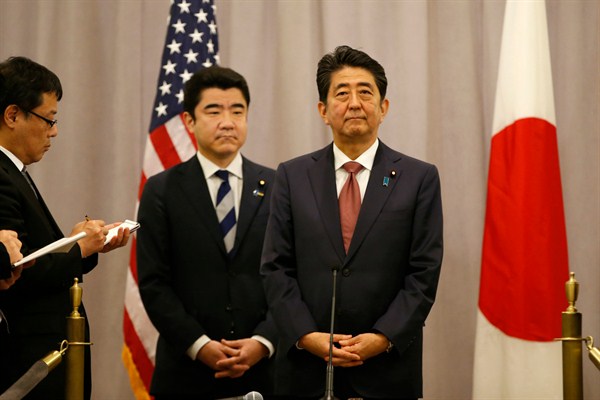Donald Trump’s surprising election victory has been met with caution around the world as America’s friends and rivals try to gauge the future direction of U.S. foreign policy under the new administration. In Japan, whose cornerstone relationship with Washington helps guide U.S. strategy in Asia, Trump’s win has elicited pause and an intense effort to shore up Japanese interests. Prime Minister Shinzo Abe was quick to send a congratulatory cable to the president-elect, lauding his victory and indulging him by complimenting his acumen as a successful businessman.
Abe followed up with a shrewd move to arrange a face-to-face meeting with Trump last month, hastily arranged as a stopover during his trip to Peru to attend the leader’s summit of the Asia Pacific Economic Cooperation (APEC) meetings. It was Trump’s first meeting with a foreign leader. The Abe administration has been cagey about the details of the meeting but did stress that there was “confidence” in Trump and his appreciation of the importance of the U.S.-Japan alliance.
Under the surface, however, there are deep anxieties in Tokyo regarding Trump’s worldview and the impact this may have on extended U.S. deterrence commitments to Japan and other allies in Asia. Trump has staked out a fiercely anti-trade line and recently committed to withdraw from the Trans-Pacific Partnership in the first days of his administration. The TPP, the huge Pacific Rim trade deal that aimed to establish high standards and regulatory commitments from Australia to Chile, has become an important plank of Abe’s economic policies. Known as “Abenomics,” the policies are intended to transform Japan’s stagnant economic growth and reorient its antiquated regulations, especially in sensitive agricultural sectors.

